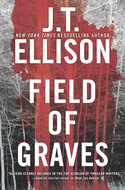Książki nie można pobrać jako pliku, ale można ją czytać w naszej aplikacji lub online na stronie.
Czytaj książkę: «The Other Mrs»
She tried to run, but she can’t escape the other Mrs.
Sadie and Will Foust have only just moved their family from bustling Chicago to small-town Maine when their neighbor Morgan Baines is found dead in her home. The murder rocks their tiny coastal island, but no one is more shaken than Sadie.
But it’s not just Morgan’s death that has Sadie on edge. It’s the eerie and decrepit old home they inherited. It’s Will’s disturbed teenage niece, Imogen, with her threatening presence. And it’s the troubling past that continues to wear at the seams of their family.
As the eyes of suspicion turn toward the new family in town, Sadie is drawn deeper into the mystery of Morgan’s death. But Sadie must be careful, for the more she discovers about Mrs. Baines, the more she begins to realize just how much she has to lose if the truth ever comes to light.
MARY KUBICA is The New York Times bestselling author of five novels, including The Good Girl. She holds a Bachelor of Arts degree from Miami University in Oxford, Ohio, in History and American Literature. She lives outside of Chicago with her husband and two children.
Visit Mary at http://www.marykubica.com/
Also by Mary Kubica
The Good Girl
Pretty Baby
Don’t You Cry
Every Last Lie
When the Lights Go Out
The Other Mrs
Mary Kubica

ONE PLACE. MANY STORIES
Copyright

An imprint of HarperCollins Publishers Ltd
1 London Bridge Street
London SE1 9GF
First published in Great Britain by HQ in 2020
Copyright © Mary Kyrychenko 2020
Mary Kyrychenko asserts the moral right to be identified as the author of this work.
A catalogue record for this book is available from the British Library.
This novel is entirely a work of fiction. The names, characters and incidents portrayed in it are the work of the author’s imagination. Any resemblance to actual persons, living or dead, events or localities is entirely coincidental.
All rights reserved under International and Pan-American Copyright Conventions. By payment of the required fees, you have been granted the non-exclusive, non-transferable right to access and read the text of this e-book on-screen. No part of this text may be reproduced, transmitted, downloaded, decompiled, reverse engineered, or stored in or introduced into any information storage and retrieval system, in any form or by any means, whether electronic or mechanical, now known or hereinafter invented, without the express written permission of HarperCollins.
Ebook Edition © February 2020 ISBN: 9781474057639
Note to Readers
This ebook contains the following accessibility features which, if supported by your device, can be accessed via your ereader/accessibility settings:
Change of font size and line height
Change of background and font colours
Change of font
Change justification
Text to speech
Praise for The Other Mrs
‘Kubica ratchets up tension and intrigue in The Other Mrs.
Her salacious, thoroughly mysterious characters bear the qualities
we all crave in a thriller – seductive, seemingly unknowable, and
altogether unpredictable’
Karin Slaughter
‘Terrifying. Kubica’s best work yet’
Caroline Kepnes, author of You
‘Brilliantly propulsive and engrossing, with twists you won’t see
coming, The Other Mrs is that rare thing: a thriller with heart’
JP Delaney, author of The Girl Before
‘A labyrinth of deception and family secrets, each one more
shocking than the last, with an ending that left me thunderstruck’
Samantha Downing, author of My Lovely Wife
‘Mary Kubica’s best book yet! I tore through the twisty,
spine-tinglingly creepy pages’
Sarah Pekkanen, co-author of The Wife Between Us
‘An utterly absorbing tale of deception and subterfuge’
Liv Constantine, author of The Other Mrs Parrish
Praise for Mary Kubica
‘Creepy and oh so clever, with a brilliant twist!’
Alice Feeney, author of Sometimes I Lie
‘Brilliant, intense, and utterly addictive’
B A Paris, author of Behind Closed Doors
‘Grabs you from the moment it starts’
Daily Mail
‘Gets right under your skin and leaves its mark.
A tremendous read’
The Sun
For Michelle and Sara
Contents
Cover
Back Cover Text
About the Author
Booklist
Title Page
Copyright
Note to Readers
Praise
Dedication
SADIE
SADIE
SADIE
CAMILLE
SADIE
CAMILLE
SADIE
SADIE
MOUSE
SADIE
CAMILLE
SADIE
MOUSE
SADIE
CAMILLE
SADIE
SADIE
SADIE
SADIE
MOUSE
SADIE
CAMILLE
SADIE
CAMILLE
SADIE
MOUSE
SADIE
SADIE
MOUSE
SADIE
MOUSE
SADIE
SADIE
SADIE
SADIE
MOUSE
SADIE
MOUSE
SADIE
SADIE
WILL
SADIE
WILL
SADIE
WILL
SADIE
WILL
SADIE
WILL
SADIE
WILL
SADIE
SADIE
AUTHOR’S NOTE
ACKNOWLEDGMENTS
About the Publisher
SADIE
There’s something off about the house. Something that nags at me, makes me feel uneasy, though I don’t know what it is that makes me feel this way. On the surface, it’s perfectly idyllic, gray with a large covered porch, one that runs the full width of the house. It’s boxy and big, a foursquare farmhouse with windows aligned in rows, symmetrical in a way I find eye-pleasing. The street itself is charming, sloped and tree-covered, each home as lovely and well kept as the next.
On the surface, there’s nothing not to like. But I know better than to take things at face value. It doesn’t help that the day, like the house, is gray. If the sun were out maybe I’d feel differently.
“That one,” I say to Will, pointing at it because it’s identical to the one in the picture that was given to Will from the executor of the estate. He’d flown in last week, to Portland, to take care of the official paperwork. Then he’d flown back, so we could drive here together. He hadn’t had time to see the house then.
Will pauses, bringing the car to rest in the street. He and I lean forward in our seats at exactly the same time, taking it in, as do the boys in the back seat. No one speaks, not at first, not until Tate blurts out that the house is gigantic—transposing his soft and his hard g’s as seven-year-olds have a tendency to do—and Will laughs, overjoyed that someone besides him can see the advantage of our move to Maine.
The house is not gigantic, not really, but in comparison to a 1,200-square-foot condo, it is, especially when it comes with its own yard. Tate has never had his own yard before.
Will gently steps on the gas, easing the car into the driveway. Once in Park, we climb out—some more quickly than others, though the dogs are the quickest of all—stretching our legs, grateful, if for nothing else, to be done with the long drive. The air outside is different than what I’m used to, infused with the scent of damp earth, salty ocean and the woodsy terrain. It smells nothing like home. The street is quiet in a way I don’t like. An eerie quiet, an unsettling quiet, and at once I’m reminded of the notion that there’s safety in numbers. That bad things are less likely to happen among crowds. There’s a misconception that rural living is better, safer than urban living, and yet it’s simply not true. Not when you take into account the disproportionate number of people living in cities, the inadequate health care system in rural parts.
I watch Will walk toward the porch steps, the dogs running along beside him, passing him up. He’s not reluctant like me. He struts as much as he walks, anxious to get inside and check things out. I feel resentful because of it, because I didn’t want to come.
At the base of the steps he hesitates, aware only then that I’m not coming. He turns toward me, standing still next to the car, and asks, “Everything all right?” I don’t answer because I’m not sure if everything is all right.
Tate goes dashing after Will, but fourteen-year-old Otto hovers like me, also reluctant. We’ve always been so much alike.
“Sadie,” Will says, modifying his question, asking this time, “are you coming?” He tells me it’s cold out, a fact of which I was unaware because of my focus on other things, like how the trees around the house tower high enough to block the light. And how dangerously slick the steep street must be when it snows. A man stands up at the top of the hill, on his lawn with a rake in hand. He’s stopped raking and stands perched, watching me, I think. I raise a hand and wave, the neighborly thing to do. He doesn’t wave back. He turns away, goes back to raking. My gaze goes back to Will, who says nothing of the man. Surely he saw him as well as I did.
“Come on,” Will says instead. He turns and climbs the steps with Tate beside him. “Let’s go inside,” he decides. At the front door, Will reaches into his pocket and pulls out the house keys. He knocks first, but he doesn’t wait to be let in. As Will unlocks the door and pushes it open, Otto moves away from me, leaving me behind. I go, too, only because I don’t want to be left alone outside.
Inside we discover that the house is old, with things like mahogany paneling, heavy drapery, tin ceilings, brown-and-forest-green walls. It smells musty. It’s dark, dreary.
We crowd together in the entryway and assess the home, a traditional floor plan with the closed-in rooms. The furnishings are formal and unwelcoming.
My attention gets lost on the curved legs of the dining room table. On the tarnished candelabra that sits on top of it. On the yellowing chair pads. I hardly see her standing at the top of the stairs. Were it not for the slightest bit of movement caught out of the corner of my eye, I might never have seen her. But there she stands, a morose figure dressed in black. Black jeans, a black shirt, bare feet. Her hair is black, long with bangs that slant sideways across her face. Her eyes are outlined in a thick slash of black eyeliner. Everything black, aside from the white lettering on her shirt, which reads, I want to die. The septum of her nose is pierced. Her skin, in contrast to everything else, is white, pallid, ghostlike. She’s thin.
Tate sees her, too. At this, he moves from Will to me, hiding behind me, burrowing his face into my backside. It’s not like Tate to be scared. It’s not like me to be scared, and yet I’m well aware that the hairs on the nape of my neck now stand on end.
“Hello,” I say, my voice weak.
Will now sees her, too. His eyes go to her; he says her name. He starts climbing the steps to her, and they creak under his feet, protesting our arrival. “Imogen,” he says with arms wide, expecting, I think, that she’ll fold herself into them and let him hold her. But she doesn’t because she’s sixteen and standing before her is a man she hardly knows. I can’t fault her for this. And yet the brooding, melancholic girl was not what I’d imagined when we discovered we were given guardianship of a child.
Her voice is acidic when she speaks, quiet—she doesn’t ever raise her voice; she doesn’t need to. The muted tone is much more unsettling than if she screamed. “Stay the fuck away from me,” she says coolly.
She glowers down over the stair banister. My hands involuntarily move behind me and to Tate’s ears. Will stops where he is. He lowers his arms. Will has seen her before, just last week when he came and met with the executor of the estate. It was then that he signed the papers and took physical possession of her, though arrangements had been made for her to stay with a friend while Will, the boys and I drove here.
The girl asks, her voice angry, “Why’d you have to come?”
Will tries to tell her—the answer is easy, for were it not for us, she’d likely have entered the foster care system until she turned eighteen, unless she was granted emancipation, which seemed unlikely at her age—but an answer is not what she wants. She turns away from him, disappearing into one of the second-story rooms where we hear her futzing angrily with things. Will makes a move to follow, but I say to him, “Give her time,” and he does.
This girl is not the same as the little girl Will had shown us in the photograph. A happy-go-lucky freckled brunette of about six years old. This girl is different, much changed. The years have not been kind to her. She comes with the house, just another thing that’s been left to us in the will, mixed in with the house and the heirlooms, what assets remain in the bank. She’s sixteen, nearly able to be on her own—a moot point that I tried arguing, for certainly she had a friend or some other acquaintance who could take her in until she turned eighteen—but Will said no. With Alice dead, we were all that remained, her only family, though she and I were meeting just now for the first time. She needs to be with family, Will told me at the time, days ago only, though it feels like weeks. A family who will love and care for her. She’s all alone, Sadie. My maternal instinct had kicked in then, thinking of this orphaned child all alone in the world, with no one but us.
I hadn’t wanted to come. I’d argued that she should come to us. But there was so much more to consider, and so we came anyway, despite my reservations.
I wonder now, and not for the first time this week, what kind of disastrous effect this change will have on our family. It can’t possibly be the fresh start Will so auspiciously believes it to be.
SADIE
Seven Weeks Later...
The siren woke us at some point in the middle of the night. I heard the scream of it. I saw the dazzling lights that streamed in the bedroom window as Will grabbed his glasses from the bedside table and sat up abruptly in bed, adjusting them on the bridge of his nose.
“What’s that?” he asked, holding his breath, disoriented and confused, and I told him it was a siren. We sat hushed for a minute, listening as the wail drifted farther away, quieting down but never going completely silent. We could hear it still, stopped somewhere just down the street from our home.
“What do you think happened?” Will asked, and I thought only of the elderly couple on the block, the man who pushed his wife in a wheelchair up and down the street, though he could barely walk. They were both white-haired, wrinkled, his back curved like the hunchback of Notre Dame. He always looked tired to me, like maybe she was the one who should be doing the pushing. It didn’t help that our street was steep, a decline to the ocean below.
“The Nilssons,” Will and I said at the same time, and if there was a lack of empathy in our voices it’s because this is what is expected of older people. They get injured, sick; they die.
“What time is it?” I asked Will, but by then he’d returned his glasses to the bedside table and said to me, “I don’t know,” as he pressed in closely and folded an arm around my waistline, and I felt the subconscious pull of my body from his.
We fell back asleep that way, forgetting altogether about the siren that had snatched us from our dreams.

In the morning I shower and get dressed, still tired from a fitful night. The boys are in the kitchen, eating breakfast. I hear the commotion downstairs as I step uneasily from the bedroom, a stranger in the home because of Imogen. Because Imogen has a way of making us feel unwelcome, even after all this time.
I start to make my way down the hall. Imogen’s door is open a crack. She’s inside, which strikes me as odd because her door is never open when she’s inside. She doesn’t know that it’s open, that I’m in the hallway watching her. Her back is to me and she’s leaned into a mirror, tracing the lines of black eyeliner above her eyes.
I peer through the crevice and into Imogen’s room. The walls are dark, tacked with images of artists and bands who look very much like her, with the long black hair and the black eyes, dressed in all black. A black gauzy thing hangs above her bed, a canopy of sorts. The bed is unmade, a dark gray pintuck duvet lying on the floor. The blackout curtains are pulled taut, keeping the light out. I think of vampires.
Imogen finishes with the eyeliner. She snaps the cap on it, turns too fast and sees me before I have a chance to retreat. “What the fuck do you want?” she asks, the anger and the vulgarity of her question taking my breath away, though I don’t know why. It’s not as if it’s the first time she’s spoken to me this way. You’d think I might be used to it by now. Imogen scuttles so quickly to the door that at first I think she’s going to hit me, which she hasn’t ever done, but the speed of her movement and the look on her face make me think she might. I involuntarily flinch, moving backward, and instead, she slams the door shut on me. I’m grateful for this, for getting the door slammed in my face as opposed to getting hit. The door misses my nose by an inch.
My heart thumps inside my chest. I stand in the hallway, breathless. I clear my voice, try to recover from the shock of it. I step closer, rap my knuckles on the wood and say, “I’m leaving for the ferry in a few minutes. If you want a ride,” knowing she won’t accept my offer. My voice is tumultuous in a way that I despise. Imogen doesn’t answer.
I turn and follow the scent of breakfast downstairs. Will is by the stove when I come down. He stands, flipping pancakes in an apron, while singing one of those songs from the jaunty CDs Tate likes to listen to, something far too merry for seven fifteen in the morning.
He stops when he sees me. “You okay?” he asks.
“Fine,” I say, voice strained.
The dogs circle Will’s feet, hoping he’ll drop something. They’re big dogs and the kitchen is small. There isn’t enough room for four of us in here, let alone six. I call to the dogs and, when they come, send them into the backyard to play.
Will smiles at me when I return and offers me a plate. I opt only for coffee, telling Otto to hurry up and finish. He sits at the kitchen table, hunched over his pancakes, shoulders slumped forward to make himself appear small. His lack of confidence worries me, though I tell myself that this is normal for fourteen. Every child goes through this, but I wonder if they do.
Imogen stomps through the kitchen. There are tears up the thighs and in the knees of her black jeans. Her boots are black leather combat boots, with nearly a two-inch heel. Even without the boots, she’s taller than me. Raven skulls dangle from her ears. Her shirt reads, Normal people suck. Tate, at the table, tries to sound it out, as he does all of Imogen’s graphic T-shirts. He’s a good reader, but she doesn’t stand still long enough for him to get a look at it. Imogen reaches for a cabinet pull. She yanks open the door, scanning the inside of the cabinet before slamming it shut.
“What are you looking for?” Will asks, always eager to please, but Imogen finds it then in the form of a Kit Kat bar, which she tears open and bites into.
“I made breakfast,” Will says, but Imogen, blue eyes drifting past Otto and Tate at the kitchen table, seeing the third, vacant place setting set for her, says only, “Good for you.”
She turns and leaves the room. We hear her boots stomp across the wooden floors. We hear the front door open and close, and only then, when she’s gone, can I breathe.
I help myself to coffee, filling a travel mug before making an effort to stretch past Will for my things: the keys and a bag that sit on the countertop just out of reach. He leans in to kiss me before I go. I don’t mean to, and yet it’s instinctive when I hesitate, when I draw back from his kiss.
“You okay?” Will asks again, looking at me curiously, and I blame a bout of nausea for my hesitation. It’s not entirely untrue. It’s been months now since the affair, and yet his hands are still like sandpaper when he touches me and, as he does, I can’t help but wonder where those hands have been before they were on me.
A fresh start, he’d said, one of the many reasons we find ourselves transported to this home in Maine, which belonged to Will’s only sister, Alice, before she died. Alice had suffered for years from fibromyalgia before the symptoms got the best of her and she decided to end her life. The pain of fibromyalgia is deep. It’s diffused throughout the body and often accompanied by incapacitating exhaustion and fatigue. From what I’ve heard and seen, the pain is intense—a sometimes stabbing, sometimes throbbing pain—worse in the morning than later in the day, but never going completely away. It’s a silent disease because no one can see pain. And yet it’s debilitating.
There was only one thing Alice could do to counter the pain and fatigue, and that was to head into the home’s attic with a rope and step stool. But not before first meeting with a lawyer and preparing a will, leaving her house and everything inside of it to Will. Leaving her child to Will.
Sixteen-year-old Imogen spends her days doing only God knows what. School, presumably, for part of it at least, because we only get truancy calls on occasion. But how she spends the rest of the day I don’t know. When Will or I ask, she either ignores us or she has something smart to say: that she’s off fighting crime, promoting world peace, saving the fucking whales. Fuck is one of her favorite words. She uses it often.
Suicide can leave survivors like Imogen feeling angry and resentful, rejected, abandoned, full of rage. I’ve tried to be understanding. It’s getting hard to do.
Growing up, Will and Alice were close, but they grew apart over the years. He was rattled by her death, but he didn’t exactly grieve. In truth, I think he felt more guilty than anything: that he did a negligent job of keeping in touch, that he wasn’t involved in Imogen’s life and that he never grasped the gravity of Alice’s disease. He feels he let them down.
At first, when we’d learned of our inheritance, I suggested to Will that we sell the home, bring Imogen to Chicago to live with us, but after what happened in Chicago—not just the affair alone, but all of it, everything—it was our chance to make a new beginning, a fresh start. Or so Will said.
We’ve been here less than two months, so that we’re still getting the lay of the land, though we found jobs quickly, Will and me, he working as an adjunct professor teaching human ecology two days a week, over on the mainland.
As one of only two physicians on the island, they practically paid me to come.
I press my lips to Will’s mouth this time, my ticket to leave.
“I’ll see you tonight,” I say, calling again to Otto to hurry up or we’ll be late. I grab my things from the countertop and tell him I’ll be in the car waiting. “Two minutes,” I say, knowing he’ll stretch two to five or six as he always does.
I kiss little Tate goodbye before I go. He stands on his chair, wraps his sticky arms around my neck and screams into an ear, “I love you, Mommy,” and somewhere inside of me my heart skips a beat because I know that at least one of them still loves me.

My car sits on the driveway beside Will’s sedan. Though we have a garage attached to the house, it’s overrun with boxes that we have yet to unpack.
The car is cold when I arrive, covered in a thin layer of frost that has settled on the windows overnight. I unlock the door with my key fob. The headlights blink; a light turns on inside.
I reach for the door handle. But before I can give it a tug, I catch sight of something on the window that stops me. There are lines streaked through the frost on the driver’s side. They’ve started to liquefy in the warmth of the morning’s sunlight, softening at their edges. But still, they’re there. I step closer. As I do, I see that the lines are not lines at all, but letters traced into the frost on the window, coming together to form a single word: Die.
A hand shoots to my mouth. I don’t have to think hard to know who left this message for me to find. Imogen doesn’t want us here. She wants us to leave.
I’ve tried to be understanding because of how awful the situation must be for her. Her life has been upended. She lost her mother and now must share her home with people she doesn’t know. But that doesn’t justify threatening me. Because Imogen doesn’t mince words. She means just what she said. She wants me to die.
I make my way back up the porch steps and call through the front door for Will.
“What is it?” he asks, making his way from the kitchen. “Did you forget something?” he asks as he cocks his head to the side, taking in my keys, my bag, my coffee. I didn’t forget something.
“You have to see this,” I say, whispering now so the boys don’t hear.
Will follows me barefoot out the front door, though the concrete is bitterly cold. Three feet from the car I point at it, the word inscribed in the frost of the window. “You see it?” I ask, turning my eyes to Will’s. He sees it. I can tell as much in his expression, in the way it turns instantly distressed, mirroring mine.
“Shit,” he says because he, like me, knows who left that there. He rubs at his forehead, thinking this through. “I’ll talk to her,” he says, and I ask defensively, “What good will that do?”
We’ve talked to Imogen many times over the last few weeks. We’ve discussed the language she uses, especially around Tate; the need for a curfew; more. Though talking at would be a more fitting term than talking to because it isn’t a conversation we have. It’s a lecture. She stands while Will or I speak. She listens, maybe. She rarely replies. She takes nothing to heart and then she leaves.
Will’s voice is quiet when he speaks. “We don’t know for certain that she left this here,” he says softly, floating an idea by me, one I’d rather not consider. “Isn’t it possible,” Will asks, “that someone left that message for Otto?”
“You think someone left a death threat on my window for our fourteen-year-old child?” I ask, in case Will has somehow misconstrued the meaning of that word Die.
“It’s possible, isn’t it?” he asks, and though I know that it is, I tell him, “No.” I say it with more conviction in my voice than I feel, because I don’t want to believe it. “Not again,” I insist. “We left all that behind when we moved.”
But did we? It isn’t entirely outside the realm of possibility that someone is being mean to Otto. That someone’s bullying him. It’s happened before. It can happen again.
I say to Will, “Maybe we should call the police.”
But Will shakes his head. “Not until we know who did this. If it’s Imogen, is that really a reason to involve the police? She’s just an angry girl, Sadie. She’s grieving, lashing out. She’d never do anything to hurt any of us.”
“Wouldn’t she?” I ask, far less sure than Will. Imogen has become another point of contention in our marriage. She and Will are related by blood; there’s a connection there that I don’t have.
When Will doesn’t reply, I go on, arguing, “No matter who the intended recipient, Will, it’s still a death threat. That’s a very serious thing.”
“I know, I know,” he says, glancing over his shoulder to be sure Otto isn’t on his way out. He speaks quickly, says, “But if we get the police involved, Sadie, it will draw attention to Otto. Unwanted attention. The kids will look at him differently, if they don’t already. He won’t stand a chance. Let me call the school first. Speak to his teacher, the principal, make sure Otto isn’t having trouble with anyone. I know you’re worried,” he says, voice softening as he reaches out, runs a comforting hand along my arm. “I’m worried, too,” he says. “But can we do that first,” he asks, “before calling the police? And can I at least have a conversation with Imogen before we just assume this was her?”
This is Will. Always the voice of reason in our marriage.
“Fine,” I tell him, relenting, admitting that he might be right. I hate to think of Otto as an outcast in a new school, of him being bullied like this.








